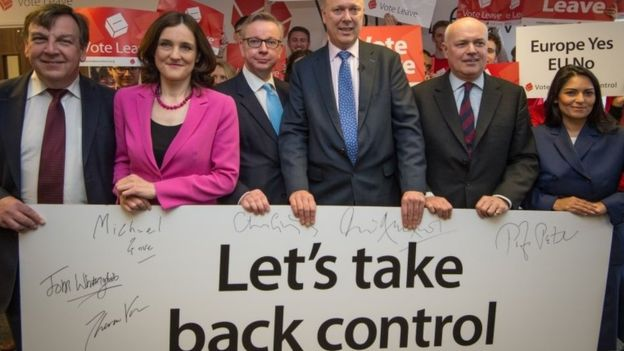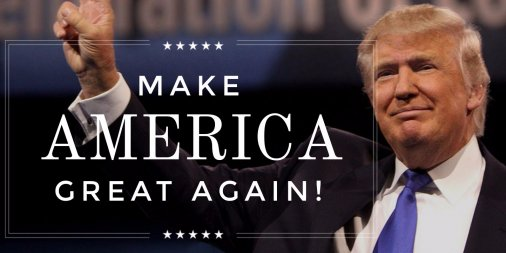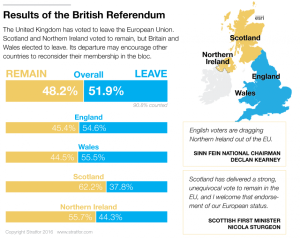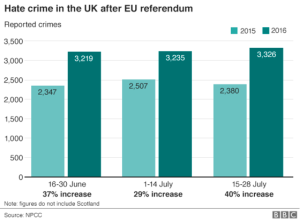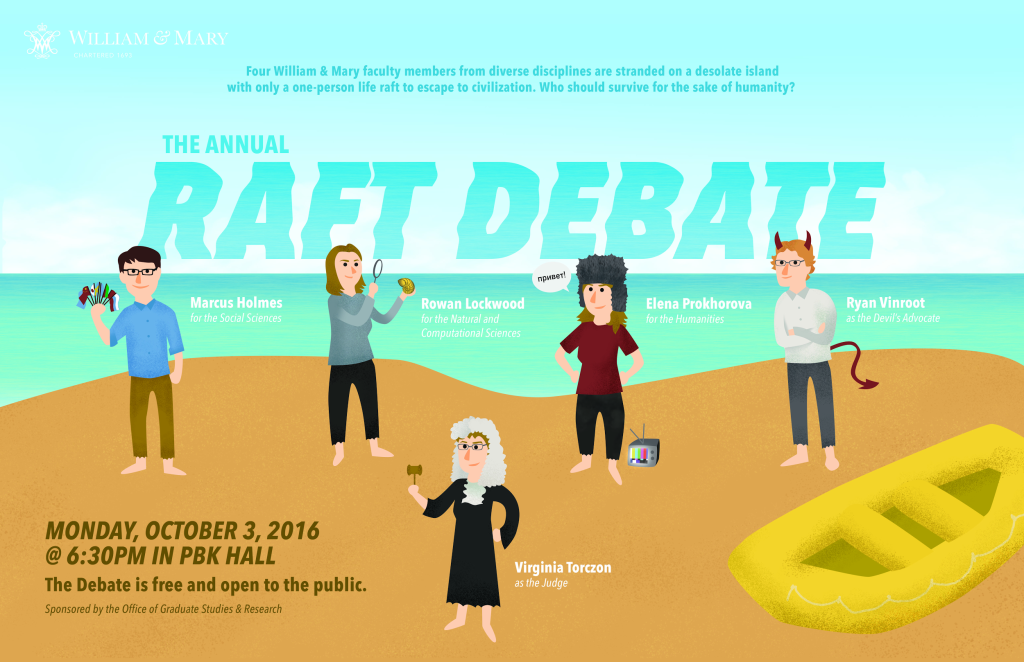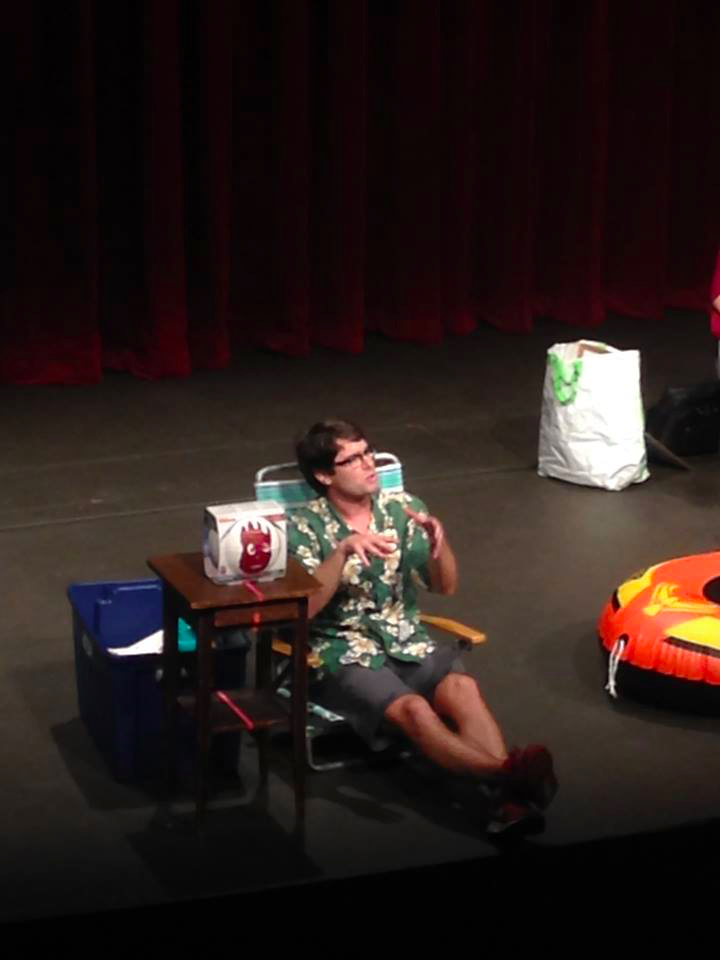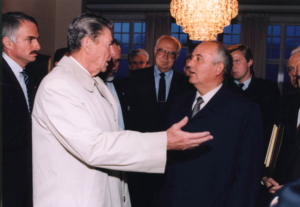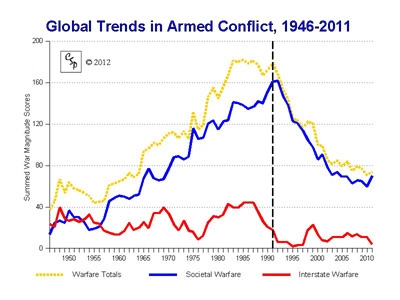Book Workshop
Published: December 16, 2016 — Written By: Sahil Mehrotra
On November 11th,, students affiliated with the SSRMC helped the Government Department host a unique event for the faculty at the College.
Thanks to generous funding from the Reves Center for International Studies, the Dean of Arts and Sciences, and the Government Department of William & Mary, four political science leaders visited campus for a book manuscript workshop. Professors Anand Sokhey of the University of Colorado at Boulder, Markus Prior of Princeton University, Shanto Iyengar of Stanford University, and Stuart Soroka of the University of Michigan all visited to give feedback on an upcoming book by Co-Director of the SSRMC, Professor Jaime Settle.
This event was an exciting opportunity for both junior and senior faculty to meet these scholars and get their thoughts on a variety of subjects. At the workshop, many William & Mary faculty members participated, including Professors Ron Rapoport, Dan Maliniak, Chris Howard, Jeremy Stoddard, and Joanna Schug. Professors Claire McKinney and Maurits van der Veen sat in for portions of the workshop. The workshop began at 8 am and ended around 5:30 pm, held in the Government Department conference room in the newly renovated Tyler Hall.
Professor Settle’s manuscript is focused on the effects of political communication on the Facebook News Feed on political polarization. All four visiting professors had a background that related to political discussion or the media. Sokhey’s research focuses on how formal and informal political conversations, interpersonal networks, and environments shape opinion-forming and decision making. Prior’s work has focused on the effect media can have on individuals as political actors and how people learn about politics. Iyengar has a vast body of work on the impact of media and ideological differences on polarization of the American public. Soroka has focused broadly on the media, and specifically the impact of negative news.
Soroka also gave a talk on a project he is leading on negative news that was open to SSRMC affiliated students and the general student body. About 50 students attended. In the talk, he explained that his research has found that negative news is physiologically more engaging to people than positive news.
John Ault Talk
Published: December 15, 2016 — Written By: Chris DeProspo
On Monday November 7th, former politician and election observer John Ault and a group of his graduate political science students hosted a group discussion on British politics. Since they were in town to observe the presidential election the next day, Ault fittingly discussed the relationship between the British Exit (Brexit) and US politics, centered around “leave politics” and a distrust of elites and the centralization of government power.
To the surprise of many, the majority of voters in the British referendum chose to leave the European Union. However, Ault suggested that the phenomena that led to this result are not necessarily unique to Britain, drawing parallels between the rise of “Trump-ism” in the US and the aforementioned result of the Brexit vote. For example, Ault suggested that Trump’s campaign and and the “leave” campaign both play off the idea of political nostalgia. For example, the quest to regain lost control and halt demographic change can be seen in the slogans of the two campaigns: “Let’s Take Back Control” and “Make America Great Again.”
If capitalizing on political nostalgia piqued voters’ interests in the leave campaign, deep political cynicism kept them there, the same distrust of centralized government elicited by Trump supporters. Indeed, though the ostensible debate was whether or not Britain should remain in the European Union, Ault and his students suggested that a more buried issue was political cynicism, a distrust shared by both those who voted to remain and leave. With that in mind, the students began to offer explanations for why the remain campaign lost the vote if some of the same issues drove both sides to the polls.
The students posited that the ultimate failure of the remain campaign was their inability to speak to voters on a personal level. To a fault, this campaign banked on the idea that people’s fears were motivated primarily by economic concerns, and his students suggested that the campaign failed to talk to people on a personal level, especially since people did not trust what elites (such as the World Trade Organization and the Organization for Economic Coordination and Development) had to say. Again, this distrust of elites is not unlike the attitudes of those who viewed positively Trump’s position as a “Washington Outsider.”
Irrespective of what did or did not motivate people to vote, the contentiousness of the referendum meant that more people voted there than in the British general elections. Particularly, Ault noted that this vote brought in many of the aforementioned cynics who felt that their vote traditionally did not matter. In the referendum vote, the vote was direct and each vote counted equally, compared to the general elections in the United Kingdom, which are determined in a first past the post system (therefore, each vote does not count equally, compared to the direct referendum). Furthermore, post election polling indicates that this polarization is not an ephemeral issue but rather a sign of things to come, as voters more strongly identified with how they voted in the referendum vote than how they voted in the general election.
However, the issue of exiting the European Union is not simply one of cynicism. The students and Ault argued that, to understand Britain’s motivations for leaving earlier this year, one has to understand the context of Britain’s entrance into the European Union, which was politically divided. They argued that Britain and the EU have always had a contentious relationship, as the Britain’s entrance into the EU did not help British interests. The students then posited that the conflict was, in some regards, inevitable.
Though Britain’s choice to vote to leave the EU resulted from deep political divides, the political parties that represent these divisions are not set in stone. Originally, the Labour Party was not in favor of joining the EU, though the positions have reversed in the past forty years so that they are now the champions of the remain campaign. One of the simultaneous byproducts and causes of the result of the referendum vote is racism, a fear of outsiders that was solidified by the result of the vote (again, those in the majority found their views- which were motivated by a fear of immigrants- confirmed). As such, hate crimes have increased since the vote, and though nothing is final yet, some view the result as an affirmation of racist mindsets.
As citizens of the United States learned on November 9th (and Britain a few months earlier), the future is uncertain. Apart from the realities of both the leave and Trump victories, there exists the reality that, in both countries, a population large enough to win the vote believes that the government is corrupt. As Ault and his students discussed, this mindset of distrust both threatens the future of democracy and could be a sign of things to come. And though they argued that a certain amount of cynicism is healthy, the amount that led to these outcomes is potentially destructive.
Judy Baroody Visit: Recap
Published: November 18, 2016 — Written By: Chris DeProspo
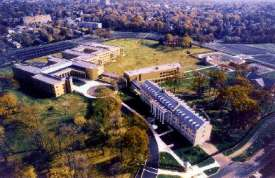
On October 28th, Dr. Judith Baroody, current Executive Director of the Association for Diplomatic Studies and Training, presented a talk on the Foreign Service, sponsored by the SSRMC. Though the ADST is not a government association, she described her relation to the United States’ State Department via the Foreign Service Institute. The FSI is a not-for-profit Institute that teaches 70 languages, management, supervision, and all the skills diplomats-in-training require in the field. She provided an overview of the FSI’s creation and current position in the world sphere. Spawned by the needs of greater intelligence gathering and diplomacy during World War II, the Foreign Service Institute aimed to heighten the US’s position in the world sphere. In 1989, the Department of Defense turned over the FSI to the State Department, where it currently resides in Arlington, Virginia.
Accordingly, Baroody expanded upon her experience as the Executive Director of the ADST. She described that one of the most important things their organization does is collecting theoral histories of those who retire from a career in the Foreign Service. When a retiree sits down with the ADST, a historian records their career, and documents their experiences that occurred at pivotal points in history. These oral histories span from the well-known to the virtually unknown. Speaking to the former, Thomas Pickering’s oral history provided 719 pages of research, but they also document the history of those who go unknown, like Constance Ray Harvey, who worked with Belgian and French resistance in World War II by smuggling important documents to the United States.
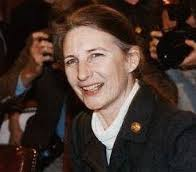
Furthermore, the ADST also publishes Diplomatic Memories, or Moments in Diplomatic history. Foundhere, these are comprehensive insight into pivotal moments in US diplomacy. Baroody talked about one such moment, involving former ambassador April Glaspie and the start of the Invasion of Kuwait. Though Baroody offered more sympathy for Glaspie than the media and the US government, she used this example to highlight both the importance of ambassadors and the importance of triangulating research. As such, she recommended utilizing the collections of both oral histories and diplomatic moments as a starting point for research.
Although Baroody always knew she wanted to work overseas, her path to the Foreign Service was not linear; if anything, it was a bit serendipitous. She recounted how her original goals were to go into acting, though these goals were stifled once she realized how many better actors there were in Williamsburg alone (including Glenn Close). Using money she saved from working at the Williamsburg Inn, she backpacked across Europe after graduating from William and Mary. While obtaining a job as a Foreign Correspondent for a news station, she still set her sights toward the Foreign Service. With that in mind, she went to UVA and graduated with a Masters Degree in Foreign Affairs. On her third application to the Foreign Service, she passed the exam and all requirements, and her career with the Foreign Service began from there.
To culminate the talk, she suggested that those interested in a career with the Foreign Service go to https://careers.state.gov/. She graciously provided a wealth of interest materials, and her personal business card to those interested in the Foreign Service, also leaving behind paper brochures and further information for the professors to distribute to students (contact the SSRMC if interested). The SSRMC welcomes her back any time.
SSRMC Spotlight: Lisa Anderson
Published: November 5, 2016 — Written By: Chris DeProspo
In the fall of 2016, Economics Professor Lisa Anderson affiliated with the Social Science Research Methods Center. A professor with the College since 1997, she knows her way around economics research on campus, yet after losing a lab in Morton Hall, she lacked a place to conduct it. Fortunately, Arthur Knight put her in contact with Professor Settle and the SSRMC, who set her up with a workspace in the SSRMC basement. Her behavioral economics setup now resides in room 150, making it a multifunctional space that she’ll utilize during the spring semester.
However, Anderson said that behavioral economics is only one facet of her work as an experimental economist, where she searches for and answers research questions all over the field of microeconomics. This search sometimes leads her to collaborate with other academics, and she told me that she collaborates with a European political scientist to study voting rules and jury outcomes. The experimental lens that she utilizes for economics lends itself well to interdisciplinary work, as it gives her questions to ask in many different fields. Highlighting the benefits of her approach, she posits that people naturally gravitate toward experimental work, since finding naturally occurring data in the field can be tough. On the downside, she mentioned that one of the barriers to interdisciplinary work is that different academic disciplines use different “languages,” making communicating between the different fields a challenge.
Furthermore, Anderson said that one of the biggest challenges as an experimental economist is not receiving funding (ironic, though by no means limited to economics). Since all of her experiments involve money-driven scenarios and cost money to run, a lack of funding could be detrimental to her research. In her words, “No grant money, no go.” In economics experiments, the participants get paid, and a participant’s decisions determine their payout. The monetary rewards for participating in her research are what differentiate her economics studies from other social science studies on campus. She is currently doing research in the areas of public goods and risk tolerance.
However, Professor Anderson spent just as much time talking about her work inside the classroom as she did her work outside the classroom, and she models her course offerings after her research and interests. Her 300-level Experimental Economics course is a good starting point for someone looking to learn about experimental economics (the only prerequisite is introductory microeconomics). From there, she recommends that someone enroll in Game Theory, and then conclude with her Econ 400-level class about Research Methods in Economics.
In particular, this upper level class gives students a chance to conduct hands on research based on research ideas that she has. Since the semester timeframe is tight, Anderson offers up her research and allows students to brainstorm with those ideas in mind. Her goal is for students to finish the experiments by spring break and spend the second half of the semester to work on analyzing data and writing a paper about their research. She emphasized that the students’ role in the class is crucial, as the students help develop and set research parameters.
Overall, Anderson said that- though she enjoys conducting research- one of the biggest pains of doing so is recruiting participants. For that reason, she recommended that students get involved in research on campus early on. The best way to start: finding a professor you connect with in class and working your way up from there.
W&M Raft Debate Recap
Published: October 11, 2016 — Written By: Chris DeProspo
Last Monday October 3rd, William and Mary hosted the annual Raft Debate, a “delicate balance of comedy and lecture” wherein three professors and a devil’s advocate argue for why one certain academic discipline (humanities, social sciences, and natural and computational sciences) should be allowed to survive at the expense of the other disciplines. The SSRMC’s own Professor Marcus Holmes was among the four professors willing to embarrass themselves in front of a large audience, and though he did not make it off the island to save the social sciences, he made a number of salient points along the way that should be addressed at more length (they can also be fact-checked at (http://www.marcusholmes.com/raftdebate/).
(Professor Holmes defends the social sciences on the big stage)
Professor Holmes- the social sciences representative- sat between professors representing the humanities and hard sciences, arguing that the social sciences combine some of the best aspects of the other two disciplines. Professor Prokhorova stated how the humanities best understand communication, but the social sciences certainly don’t ignore it. For example, one of the inhabitants of the SSRMC basement, Professor Maurits van der Veen, studies the media and their use of language to see how linguistic differences influence consumers of media. Furthermore, the SSRMC itself is committed to the study of language, and on November 10th, Stuart Soroka– an expert on political communication- will be lecturing on the William and Mary campus. Unfortunately, the seven minute time limit didn’t afford him the opportunity to say all that.
But Professor Holmes faced attacks from the other side too, taking fire from Professor Lockwood, who represented the natural and computational sciences. She said that social scientists are just “scientists who didn’t make it all the way,” and while Professor Holmes probably can’t recite the periodic table, he still utilizes scientific methods in his work, “draw[ing] upon social neuroscience and biology to make many of his arguments.” And this debate isn’t just limited to the stage of PBK; it extends throughout the fields incorporated within the broader social science umbrella. In his article Should We Make Political Science More of a Science or More about Politics?, Rogers Smith argues that “the main endeavor of political science should be to make roughly probable empirical and logical cases for and against claims about political questions,” thereby underscoring that social sciences cannot and does not ignore the latter part of the phrase.
Professor Holmes wasn’t just on the defensive; he went on the attack too. Firing back at Professor Lockwood, he stated that “hard” scientists were the ones who created the atomic bomb, but social scientists prevented them from being used and set limits on their future usage (“Ever heard of the Reykjavik Summit,” he asked the audience?). Between his bribes of plastic drink umbrellas, he defended social sciences as a field that balances humanities and hard sciences. To quote Robin Williams in Dead Poets Society, “medicine, law, business, engineering, these are noble pursuits and necessary to sustain life. But poetry, beauty, romance, love, these are what we stay alive for.” Given the height of nuclear tensions in the past, these are not luxuries that could be enjoyed if not for the work of social scientists.
(Diplomacy at its finest. The professors could learn a thing or two.)
Furthermore, he quickly defended against Professor Prokhorova’s claims that, even though they study the world’s problems, members of the social sciences rarely fix said problems. Holmes countered by stating that we live in the safest and most prosperous times ever, but you wouldn’t know that because of media spin and availability bias. Combining psychology and international relations, he offered a balanced, rational, and entertaining counterargument to the points raised by his colleagues.
(The times are a changin… for the better, evidently)
So why didn’t he win, you may ask? Well, although Professor Holmes and other social scientists might study politicians, the reality is that they are not usually politicians themselves (the exception is John Ault, a former politician and current election observer who is hosting a lunch lecture on November 7th). While other departments had a stronger ground game (similar to “get out the vote”), the social sciences had charisma. On the upside, however, at least the social science departments will have funding next year, as the other departments seem to have squandered their money on bribing students to pack the hall. And even though I received no money, no extra credit (or even a plastic drink umbrella), I still enjoyed watching the debate.
SSRMC Semester Plans
Published: September 11, 2016 — Written By: Chris DeProspo
Welcome back, friends and fans of the William & Mary Social Science Research Methods Center (henceforth abbreviated as SSRMC for the sake of my fingers). This begins another year of research, learning, and fun. For those that followed the SSRMC blog and news updates from last year, we’ve made some exciting changes and additions.
To start, we have the same Student Leadership Team as last year: Amanda, Pryce, Hannah, and myself, working alongside Professor Holmes and Professor Settle. However, we have some exciting additions to our team, including Economics Professor Lisa Anderson. She’s moved her behavioral economics set up into the SSRMC computer lab, making it a multi-functional space in room 150. In a few weeks, I’ll be writing a profile on her research to give her a proper introduction.
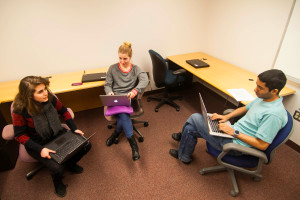 |
| (Room 150: Now a multi-functional space) |
And speaking of the SSRMC workspace, we’ve changed some of that, too. One of our goals for this year is to make our environment more inviting for students to conduct research and studying. For that reason, we’ve repurposed one of the old rooms to be an official study room, and we added a rug to the foyer in an attempt to make that seem a bit more welcoming. During the day, the SSRMC functions as a space for data collection and research collaboration, but we hope that when it is not being used for those purposes, students will think of it as an alternate study area to the Swem library.
However, we don’t just want to provide the space; rather, we want to encourage Government, Public Policy, and International Relations majors to pursue research opportunities using that space as a base for their work. Accordingly, we’ve arranged for a few events this semester that will bring the social science community to our workspace. Since all Government majors are required to complete GOVT 301, a course in social science research methods, we are offering a Government 301 open house later this semester to encourage GOVT 301 students to further pursue research opportunities on campus. Additionally, we are launching the Omnibus Project in mid-October (more about that here for those interested), which also provides an opportunity for undergraduate students and faculty to conduct research on campus. Last year over 500 students participated as survey subjects and we hope to exceed that number this year.
Our plans for the semester also include hosting a number of methods talks with guest speakers, including Judith Baroody, executive director of the Association for Diplomatic Studies and Training (an online resource that archives interviews and primary documents associated with U.S. diplomatic initiatives); John Ault, a former British politician and American election observer who studies each American presidential election along with a team of students; and Stuart Soroka, a professor at the University of Michigan who focuses on political communication (his work draws parallels with our own SNaPP and STAIR labs and Professor van der Veen’s work). Our goal with inviting these experts is to both stimulate intellectual discourse on this campus and increase undergraduate interest in the social sciences.
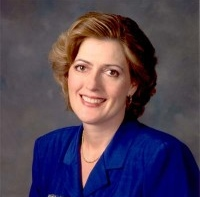 | 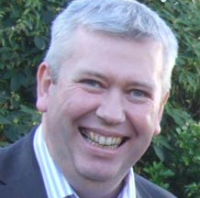 | 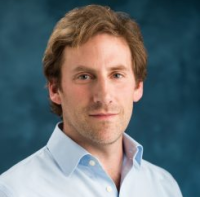 |
| (Our distinguished lineup of guest speakers) |
Hopefully, that overview provides a glimpse at what this semester has in store for us. We will continue to share our endeavors with the world through our website, Twitter, and Facebook page, though we will complement these news stories with bi-weekly blog posts from students conducting research in Professor Holmes and Professor Settle’s labs. To get fully caught up with developments from the past spring, check out our blog, which includes posts from Hannah about her summer work. Furthermore, she also describes how her research question developed into a literature review- helpful insight for students looking to conduct research.
